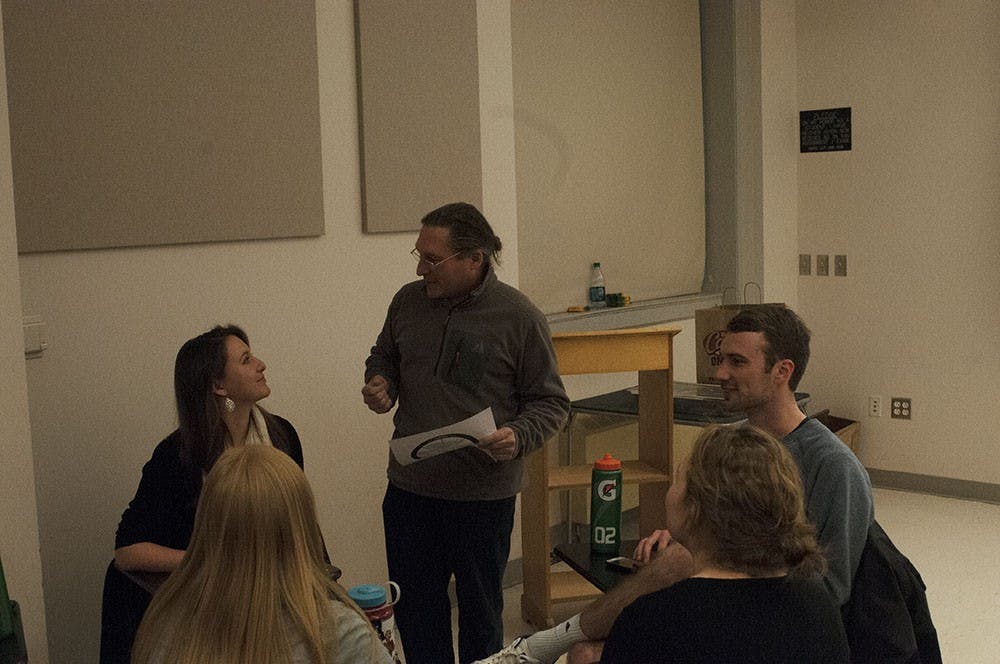UN Women, Women’s Health Virginia @ UVA and Student Global AIDS Campaign jointly hosted a talk on global health and gender-based violence Wednesday.
Edward Strickler, program coordinator for the University's Institute of Law, Psychiatry & Public Policy, led students in a small group discussion setting by presenting issues, models and mock scenarios to illustrate pressing matters in the areas of domestic violence.
"I always say women's health is the primary foundation for all health because women are the foundation for the health of their children thus their practices are passed on,” Strickler said.
Strickler focused on how matters of interpersonal violence, or IPV, are exacerbated through gender differences but said these differences negatively impact the well-being of both men and women.
“The national network for ending domestic violence has a whole package of materials that they are using to tackle the issue of gender violence as it covers many areas," Strickler said.
He discussed the term “syndemics,” which describes synergistically interacting epidemics that fuel one another to amplify negative effects. Strickler also cited a particular example of the syndemic of substance abuse, violence and AIDS, also known as SAVA.
"People talk about how those disease processes somehow are associated and working together synergistically to produce more illness and death than we would otherwise expect,” Strickler said. “These are things you already see and know but somehow or another when they don’t get described on paper together, the work does not get done.”
Research from the Journal of Urban Health further linked SAVA to yet another matter — mental health, particularly depression. The study of 445 urban women showed that those “who experienced all three factors of SAVA were 6.77 times more likely to have depressive symptoms.”
In small groups, students discussed how to tackle spikes in HIV and IPV in a community.
“When you get a community together you get really contradictory points of view of how to go about [handling a situation],” Strickler said.
Third-year College student Mary Namugosa was one student who participated in the discussion.
“It got us really thinking about how interconnected factors that affected people’s decision to get treatment or to not get treatment really are. So its important to sympathize with people,” Namugosa said. "The people we come into contact with might be in these situations, we have to be sensitive of how we react to the people in the community because you don’t know what they are going through.”
Many attendees said they felt education against domestic violence should begin at a younger age, possibly even before high school. A few mentioned the need for more community-based feedback for effective education reforms.
Second-year College student Kelley Buck said these talks are informative, but it is generally the same people in attendance — women taking gender studies classes.
"Ultimately these kinds of thing should probably be conducted at a larger scale because the people who aren't hearing this are the ones that should be here,” Buck said. “I think change starts from individual students and we are lucky to be at university that supports these kinds of talk so I feel like it’s almost our duty to explore these issues because we are the ones to bring about change."







